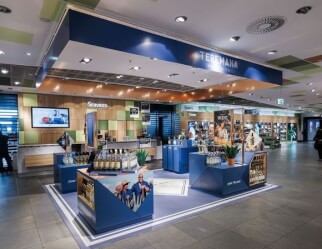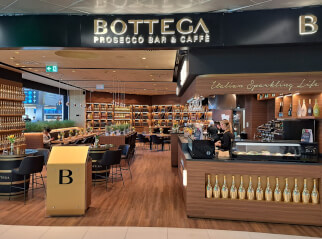ForwardKeys details impact of Ukraine war on travel
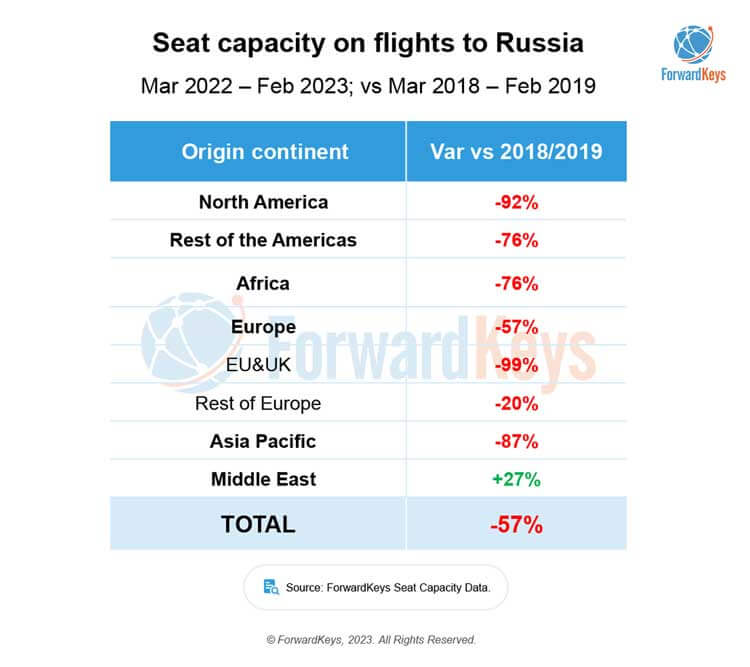
On the one-year anniversary of Russia’s invasion of Ukraine, ForwardKeys has released highlights of its comprehensive analysis on the impact of the war on travel.
Sanctions and a ban on direct flights between Russia and most of the EU has dramatically reduced Russia’s air connectivity with the rest of the world. As for the Middle East and Turkey, which have not banned flights to and from Russia, have benefitted from a rise in air traffic to and through the regions.
Seat capacity between Russia and the Middle East throughout the year was 27% greater than it was in the equivalent period before the pandemic; it was 26% between the country and Turkey. By comparison, it was 99% less to the EU and UK, 92% less to North America, 87% less to Asia Pacific, 76% less to Africa and the rest of the Americas and 20% less to the rest of Europe.
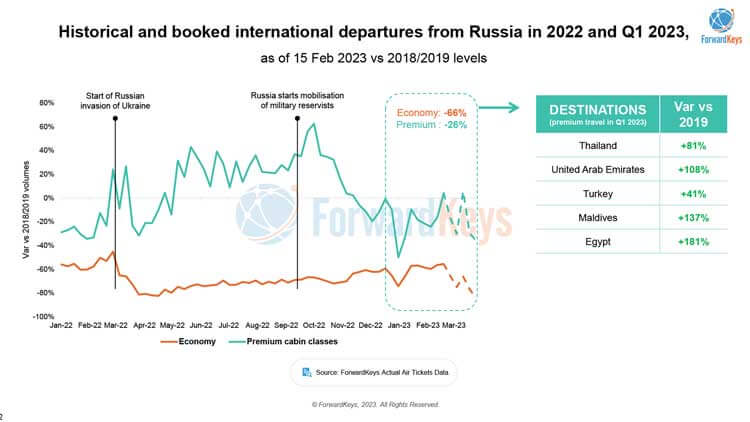
One of the most surprising trends to emerge during the first ten months of the war was the return of “wealthy Russians” to international travel with a vengeance post-pandemic. From the start of the war on February 24 to the end of December 2022, premium class tickets for Russian outbound travel increased by 10% vs. pre-pandemic levels. This is in comparison to a 70% drop in economy class travel.
As of February 15 of this year, premium class flight bookings in Q1 are currently 26% behind 2019 levels and economy 66% behind.
The destination which was most successful in attracting affluent Russians was Thailand, to where premium class travel was up by 81% on 2019. It was followed by the UAE (108%), Turkey (41%) the Maldives (137%) and Egypt (181%).
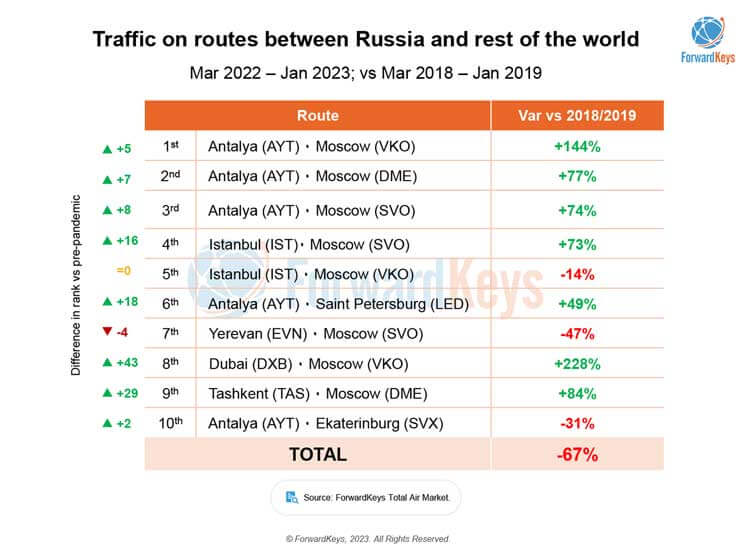
The most popular route for Russians have been to and from Antalya, the Turkish riviera resort. Flights there from Moscow’s three major airports: Vnukovo, Domodedovo and Sheremetyevo, were up by 144%, 77% and 74% respectively (vs. pre-pandemic levels).
The closure of Russian air space to airlines has resulted in an increase in rates and flight times between Europe and Asia Pacific. These costs have been passed on in the form of higher air fares, which have also been influenced by the late reopening of Asian destinations.
In the year following the start of the war, average air fares between Europe and Asia Pacific were 20% higher than before the pandemic in 2019 and 53% higher than last year. On flight times, 37% of air traffic between the two continents now takes more than eight hours (an increase of 23% pre-invasion).
Routes that have been worst affected include those between Japan and South Korea in Asia Pacific and France, Germany, Scandinavia & the UK in Europe.
“The greatest impact on air travel to and from Russia since the invasion of Ukraine last February has been war-related sanctions, which have particularly benefitted Turkey and the Middle East, as they have maintained direct flights to and from Russia. We expect Chinese airlines will be another winner as they are still flying through Russian air space; and that gives them a competitive advantage in flight times and fuel costs on routes between Europe and Asia Pacific. However, the most eye-opening feature is the premium class boom, which appears to illustrate a division in Russian society between the rich, who holidayed in style, while the less affluent stayed at home," says Olivier Ponti, VP Insights, ForwardKeys.






